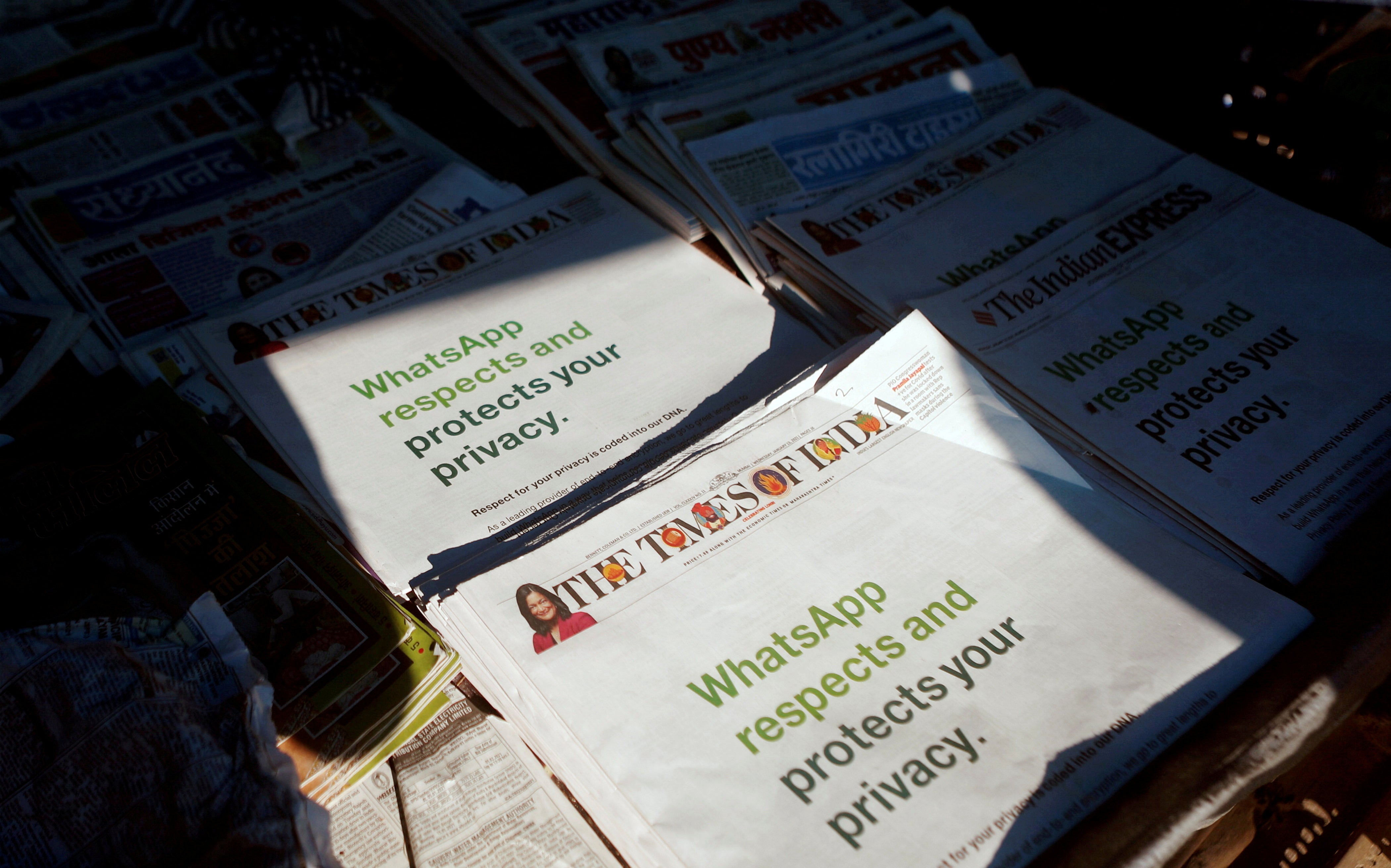WhatsApp sues Indian government ‘to protect users’ privacy’
WhatsApp is seeking to block new rules that require the company to identify ‘originator’ of messages when authorities demand

WhatsApp has filed a lawsuit against the Indian government to block new rules that come into force on Wednesday and require instant messaging platforms to identify “originator” of messages when authorities demand.
The petition was filed in the Delhi High Court on 25 May, just a day before the new rules come into force.
A WhatsApp spokesperson said: “Requiring messaging apps to ‘trace’ chats is the equivalent of asking us to keep a fingerprint of every single message sent on WhatsApp, which would break end-to-end encryption and fundamentally undermines people’s right to privacy.”
The spokesperson said the company will continue to engage with the Indian government “on practical solutions aimed at keeping people safe, including responding to valid legal requests for the information available to us.”
This was in response to new guidelines which were notified in February under India’s Information Technology Act to regulate social media companies, streaming and digital news content. The Indian government has come under criticism for the rules, which some say will bring these platforms under government supervision and undermine user rights like end-to-end encryption.
The new rules require “social media intermediaries providing services primarily in the nature of messaging” to enable the identification of the first originator of the information as may be required by the authorities.
The rules say an order in this regard can only be passed in offences related to sovereignty and integrity of India, the security of the state, public order, relations with foreign states, rape, or sexually explicit material.
Relying on a Supreme Court judgment from 2017, WhatsApp has argued in its plea that the traceability provision is unconstitutional and against people’s fundamental right to privacy, according to The Indian Express. It has asked the court to stop the provision from coming into force and prevent imposition of criminal liability upon its employees for non-compliance.
In a post, WhatsApp says traceability requires private messaging services like itself to “keep track of who-said-what and who-shared-what for billions of messages sent every day.”
It says that in order to trace even one message, services would have to trace every message. “That’s because there is no way to predict which message a government would want to investigate in the future.”
It goes on to say: “A government that chooses to mandate traceability is effectively mandating a new form of mass surveillance. To comply, messaging services would have to keep giant databases of every message you send, or add a permanent identity stamp — like a fingerprint — to private messages with friends, family, colleagues, doctors, and businesses.”
WhatsApp, which has nearly 400 million users in India, says companies would then be collecting more information about their users at a time when people want companies to have less information about them.
Digital rights activist and Medianama founder Nikhil Pahwa also explained in a series of tweets the significance of the WhatsApp case.
He said: “WhatsApp uses end to end encryption. This doesn't just mean that they don't know what is in our messages. It also means that they don't know who has sent what message.
“The only time they can see the content of the message is when someone marks it as spam, in which case the user who has marked it as spam unencrypts it for WhatsApp to see.”
He also says that for WhatsApp to enable identifying the originator of even one message, it would mean that they have to rearchitect the entire platform. “This potentially compromises all its users.”
Meanwhile, Facebook on Tuesday said it aimed to comply with the provisions of India’s new IT rules and was in talks with the Indian government about a few issues which need more engagement. Social media users in India expressed fears on Tuesday that Twitter and other platforms might be banned and sent out their “last tweets.”
Join our commenting forum
Join thought-provoking conversations, follow other Independent readers and see their replies
Comments